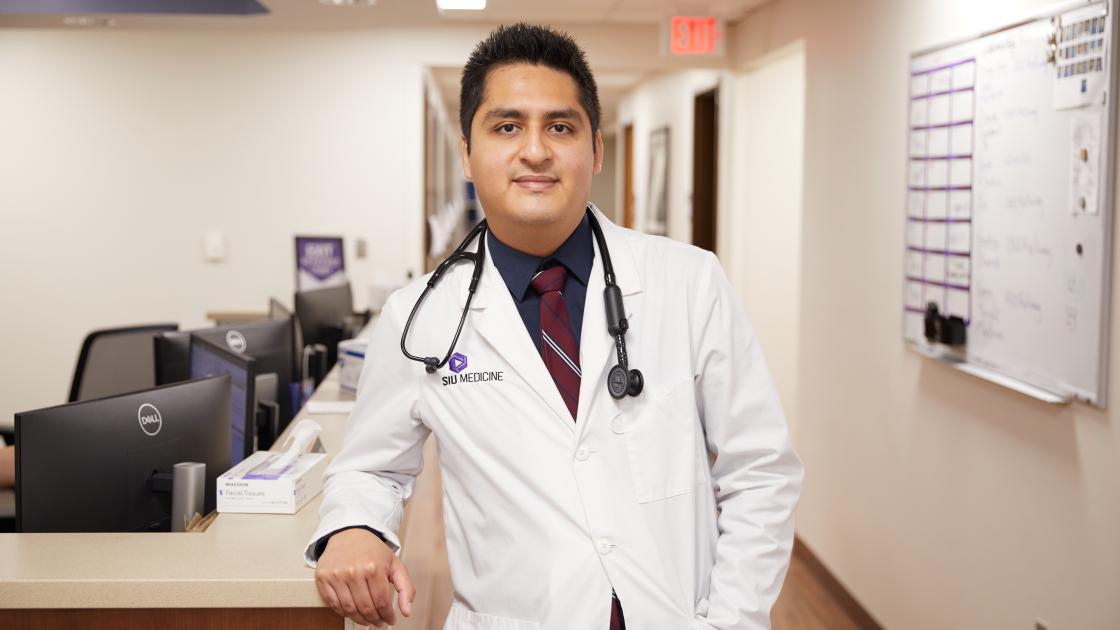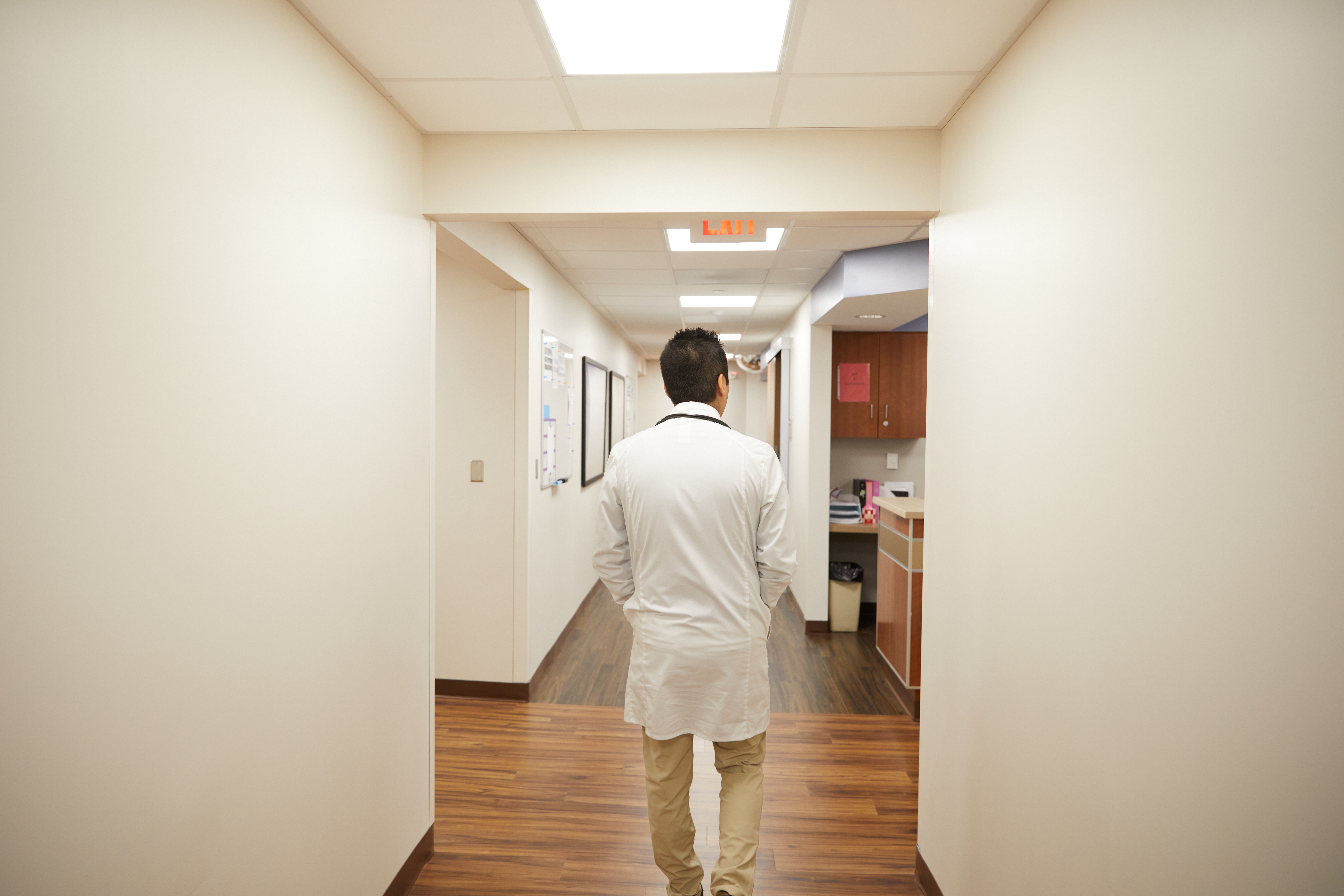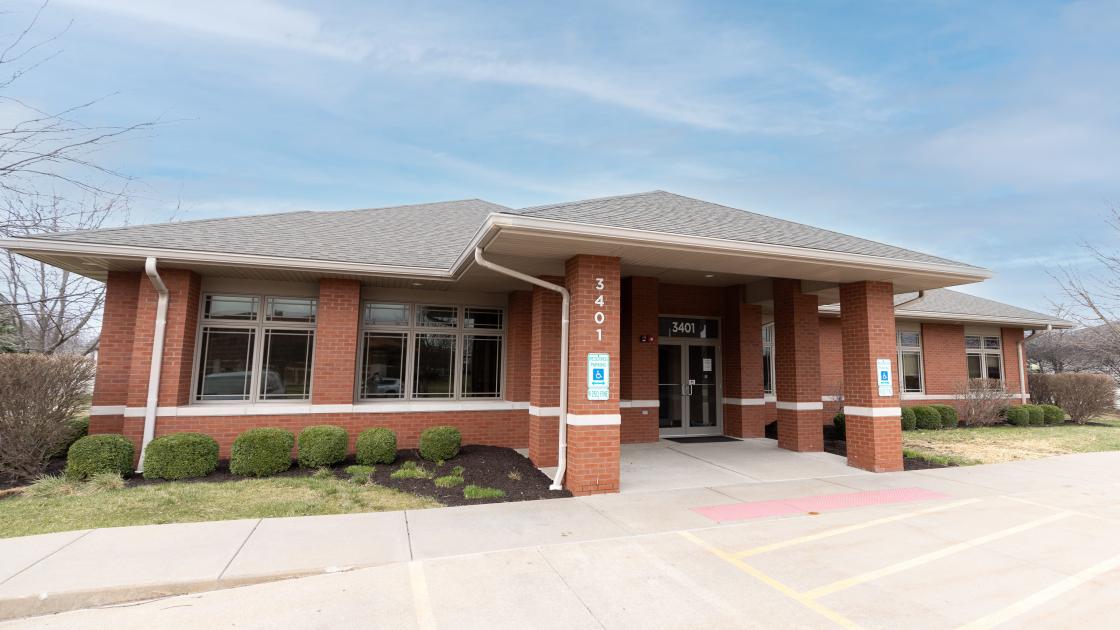
A day in the life of an SIU Medicine resident physician
Life as a resident physician is not for the faint of heart. They must balance patient care, ongoing medical education and training requirements. Resident well-being is part of an ongoing national discussion as medical programs seek to reduce stress and prevent burnout among trainees.
Dr. Julio Mendoza Estrada is a second-year internal medicine resident. We followed him on a typical clinic day to learn how he handles the stresses of resident life.

“On average I work anywhere from 60 to 70 hours a week. Study hours every day are variable, depending on how busy that day was. But I'll often study anywhere from an hour to three hours each day.”

“It helps a lot that my wife is also in residency at SIU. We both understand how busy we are and she knows what I’m going through.”
Dr. Meaghan Mendoza is a second-year emergency medicine resident physician.

“During the second year of residency, it's been much easier to manage my time. Maybe that's because I’ve passed that first-year hurdle of learning the new environment and the responsibilities. I feel much more relaxed as a second-year resident than I did as a first-year resident.”

Dr. Mendoza Estrada talks to Anand Patel, PharmD.

“It is a privilege that patients let us take care of them because we gain so much from those patient interactions. The more patients you see, the more you learn. They're as valuable to us as we are to them.”

“I think the most challenging part [of residency] has been adapting quickly to not just the new work environment and location, but expectations. That’s one of the hardest things at the beginning. And I think that challenge is always going to be there because it shows you're motivated and you're trying to learn. You're not satisfied with the bare minimum to be a doctor. You want to keep learning.”

“Our schedules, at least for our first year, overlapped very well. We would always have time after our shifts to hang out at home. Any time we had together, we would make the most of it. Whether that is being boring and just studying for our respective fields, or doing something fun like playing board games or walking the dog.”

“I'm making jokes all the time. You can ask any of my co-residents, my wife and even patients. I think that is a way I can alleviate some of that stress. If I can bring a smile to somebody else's face, that makes me happy and I'm less stressed.”
Dr. Mendoza Estrada shares a laugh with Dr. Andrew Varney, residency program director for the Department of Internal Medicine.

“I've had pretty realistic expectations since medical school. I was told residency would be difficult and stressful. And I went in thinking every day is going to be hard. But at the end of that, you become a doctor, and you're able to help patients, interact with them and make these meaningful relationships. At the end of the day, that's worth it.
Are there days, when I don’t want to come to work? Of course, everyone has those. Are there days when I’m just super stressed and tired? Most definitely. But in my eyes, they’re transient moments. They’re moments I'm probably meant to experience because they'll help me grow as a person and a doctor.”

“A lot of the advice I got before medical school and even before residency was to keep your work at work and don't bring it home. But I don't fully agree with that. Because we're both in medicine and it's a big part of our lives, it's kind of hard not to talk about our days.
I personally don't mind and neither does she, but I would say it's a little hard for us to completely turn it off because even when we're not in the hospital we're at home watching TV shows like Scrubs or House.”

“We got a dog during our second year, and it's been great. Having a dog helps alleviate so much stress. It’s an added responsibility, but every time I get home she's so happy to see me, and that is enough to make me feel better regardless of the day I’ve had.”



